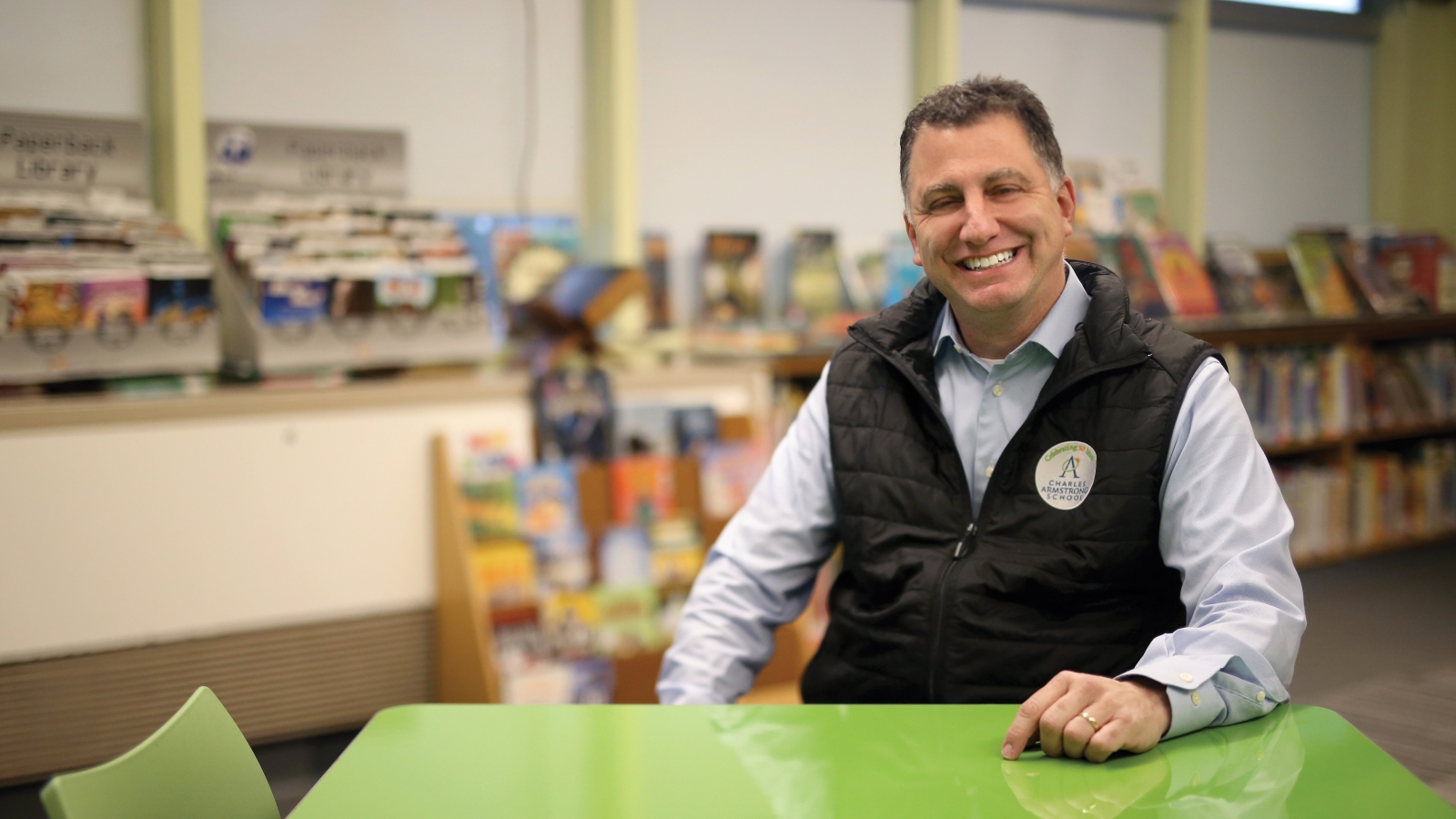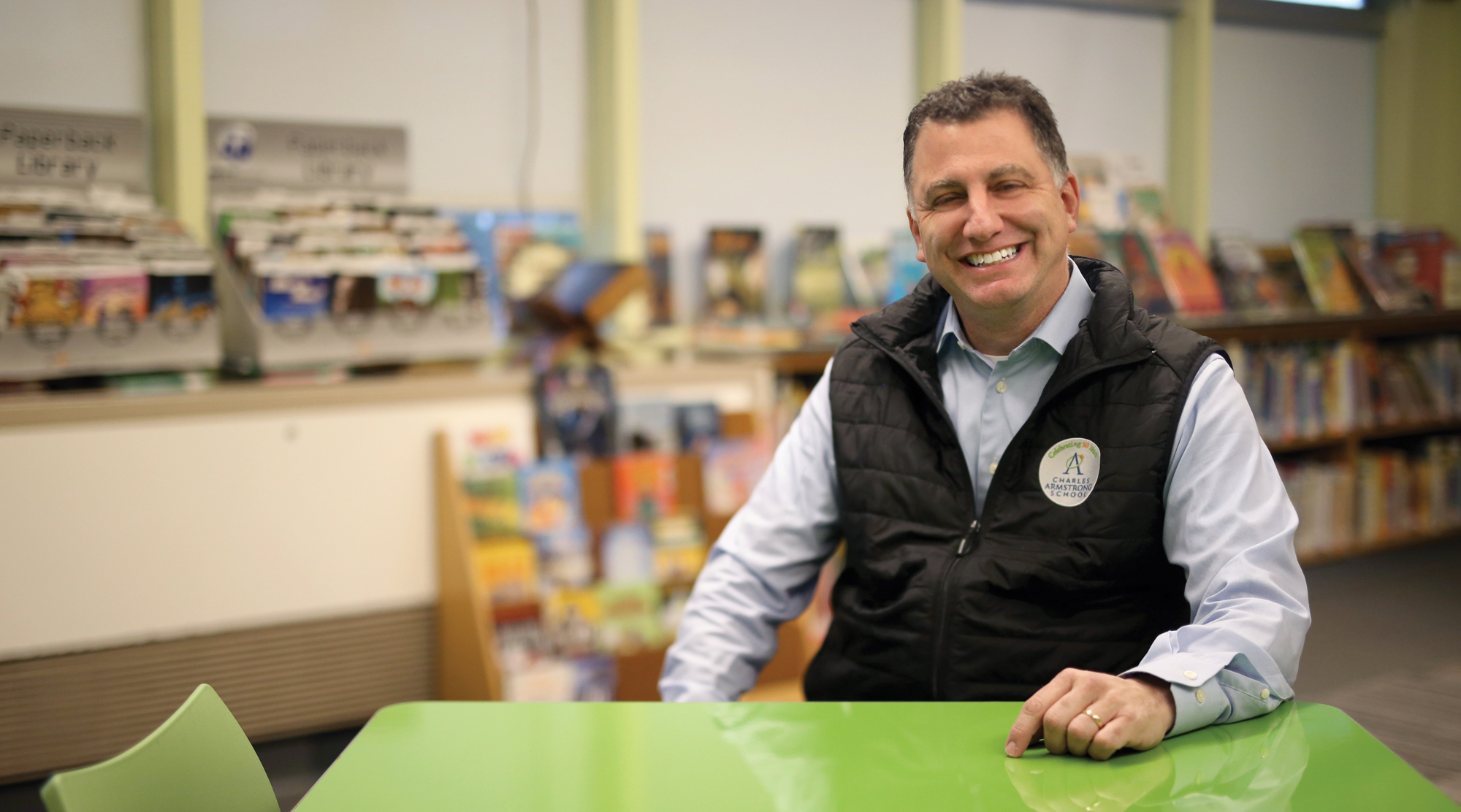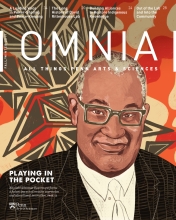Back To School
Neil Tuch, C’88, PAR’21, isn’t surprised about where he ended up, but he couldn’t have predicted how he’d get there.

Luck comes up often when talking to Neil Tuch, C’88, PAR’21. Looking back at a career that took him from Wall Street to working at an independent school, with detours to a New York City volunteer network and West Coast private equity firms, he recognizes where he’s had good fortune and where things didn’t turn out as planned.
One serendipitous event was meeting his wife, Adrienne Polishook Tuch, C’89, PAR’21 at a mutual Penn friend’s wedding. Adrienne’s path was less varied than Neil’s, but was also shaped by the flexibility of a liberal arts education: she majored in history, going on to medical school and a career as a pediatrician. Their oldest of three daughters, Bayley Tuch, C’21, studies political science, computer science, and data analytics in the College.
Neil learned about Charles Armstrong School, where he is the Chief Financial Officer, through his youngest daughter. “Armstrong educates students with dyslexia and related learning differences,” Neil says. “Students come here because they’ve had challenges in their previous schools, and parents are determined to find a school whose teaching methods will work for their children. Armstrong is that place.”

Neil Tuch, C’88, PAR’21
Q: What are your standout memories from your days as a Penn student?
From the first day I stepped foot in the Baby Quad, I loved my time at Penn. Lifelong friends, SCUE, Parliamentary Debate, an outrageous Senior Week—all provided humorous moments and lasting memories.
At the risk of sounding more academic than I really am, what stands out now is how many classes with stellar professors I packed into my College experience. Ethics and the Professions, with Provost Thomas Ehrlich, provided me great frameworks to think through challenging workplace issues. I also think about Heroes and Society, taught by the legendary Jack Reece. The class was fascinating but, truthfully, I struggled to keep up with the reading. When Dr. Reece passed away in 1997, I remember people talking about what an amazing teacher he had been and regretting I had not made the most out of that class.
Q: Your career path has had many twists and turns. Did that surprise you?
I think we all expect to have some changes in our career but I’m not sure I would have ever predicted moving from financial jobs to not-for-profit positions not just once, but twice in my career. I like to think that each step along the way, no matter how different from the step before, brought some set of experiences that shaped the next step. Goldman Sachs taught me skills I brought to New York Cares and I know the empathy I built working with underserved populations at New York Cares shaped my later work.
Anyone’s career can take these unexpected turns. Whatever you choose right after college, you can choose something different next, and after that and after that. It’s important to know it doesn’t have to be a straight line.
Q: What did you like about working in private equity?
My entry into private equity really came about through luck…actually bad luck. I worked at an early stage medical device company—it was fascinating but our device didn’t work and funding was running low. When it was clear that the product redesign would take years, I helped raise more money and left for private equity.
I loved starting H.I.G. Capital’s San Francisco office, playing a part in hiring every person and truly shaping the office culture. I also enjoyed the sales aspect of being a partner: selling management teams on how we could make their company even more successful by finding a story, shared interest, or vision they connected with.
But look—I’ll never claim to have been a great investor. I learned a hard but important lesson: You can try to do all the right things, but investments don’t always work out the way you planned. You have to take responsibility for your decisions, and sometimes you’re not going to be in the right place at the right time.
Q: How did you get involved with Charles Armstrong School?
After 16 years in private equity, I semi-retired and was trying to figure out my next step. I was able to spend more time with Adrienne and my three daughters and do a lot of volunteer work, which was an incredible luxury. One of the places I volunteered was Charles Armstrong, where my youngest daughter had been a student since second grade. I was a member of Armstrong’s Finance Committee and knew they were looking for a CFO. I ignored their need for a while and enjoyed my free time with ESPN and hiking with my dog. Eventually my interest in the school’s mission got the best of me and I casually asked a board member if I should think about the position; within two weeks I was in an office, getting to work.
Q: What is it like to work at a school?
Hopefully it doesn’t sound clichéd, but I feel very lucky to be part of the team leading Armstrong. The work is mission-driven—every decision is focused on how to create the best learning environment for dyslexic students. I oversee the school’s business side. Some people assume the not-for-profit world is easier than the business world, but I promise you that schools, with their multiple stakeholders, are much more complicated than people imagine. Students, parents, teachers, staff, neighbors … every day my people skills and analytical skills are put to the test. My proudest moments are leading our financial aid program and opening up educational opportunities to families who didn’t think they would be available.
Even on my toughest days, I can leave stop in and see what the second-graders are learning. Few work breaks are as much fun as that!
People say kind things to me about devoting this stage of my career to a school. But, we all know the real heroes are the graduates who become teachers right out of school and devote their entire careers to making an impact on students’ lives.



